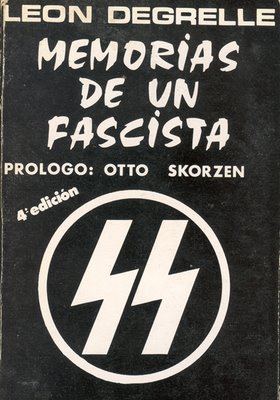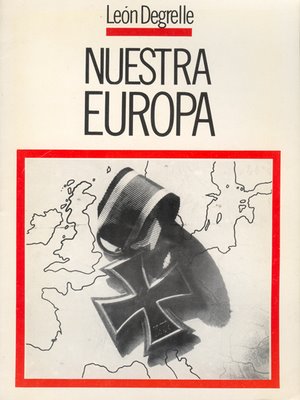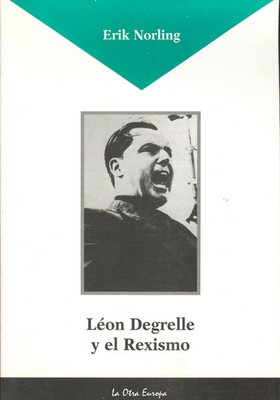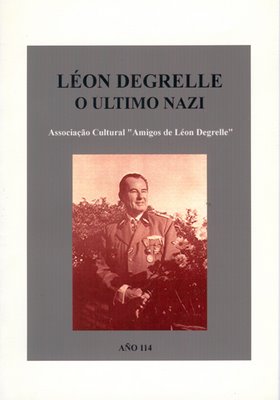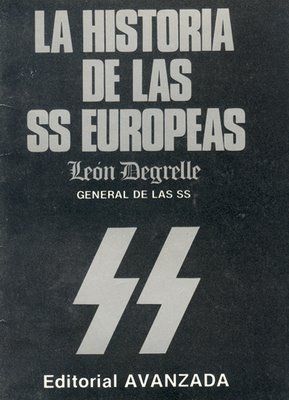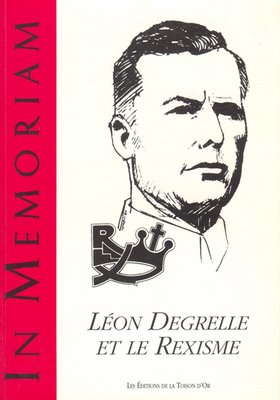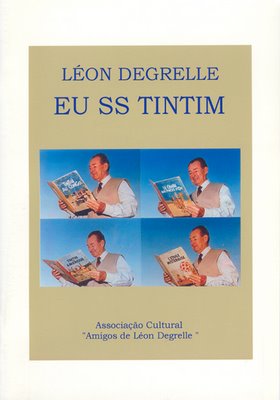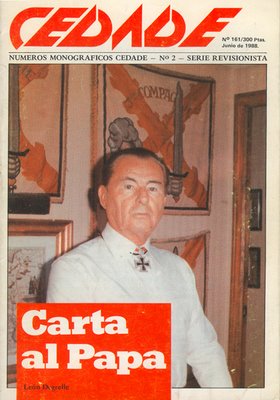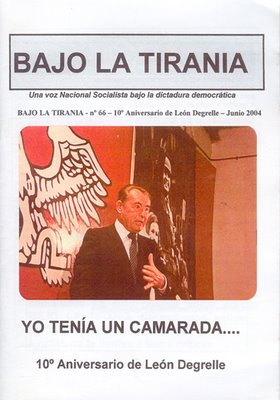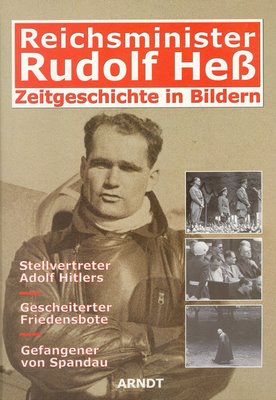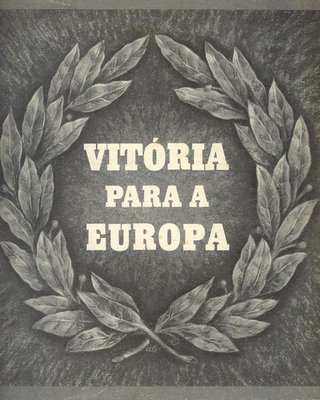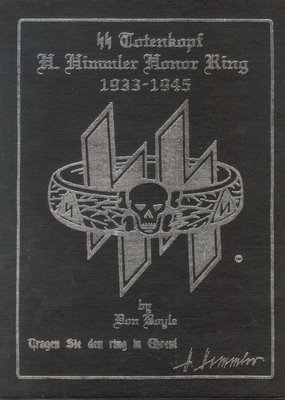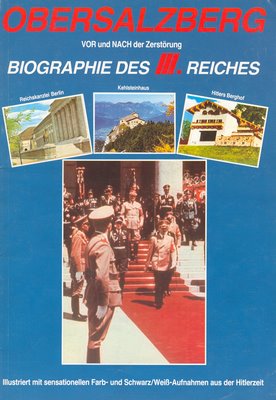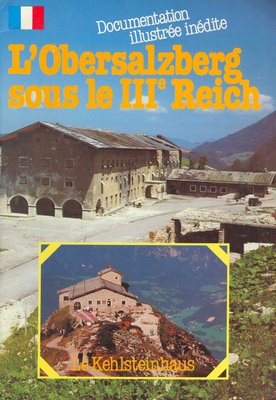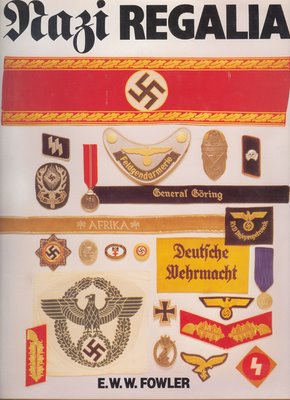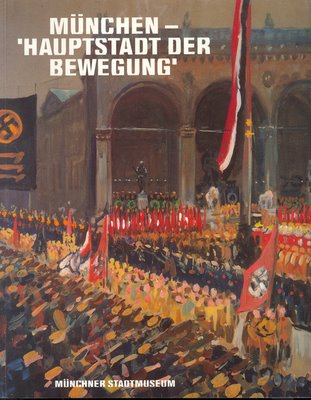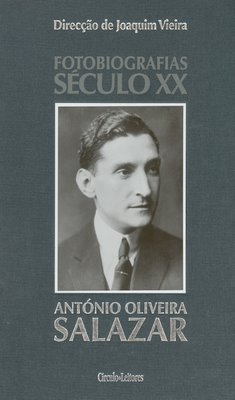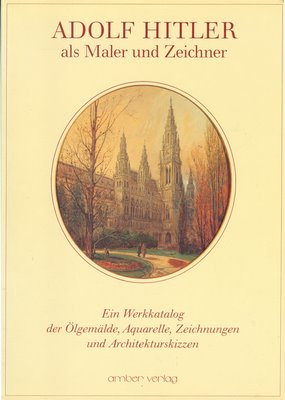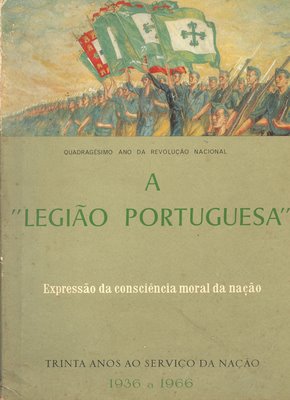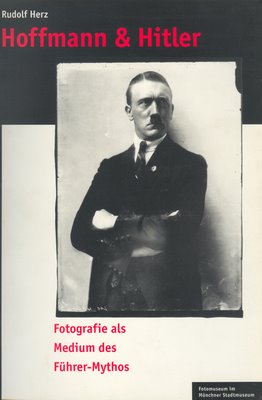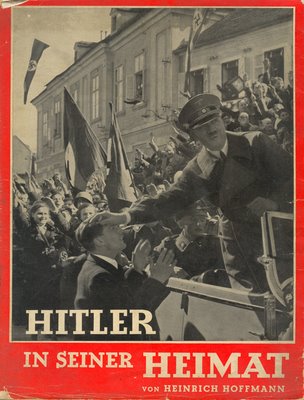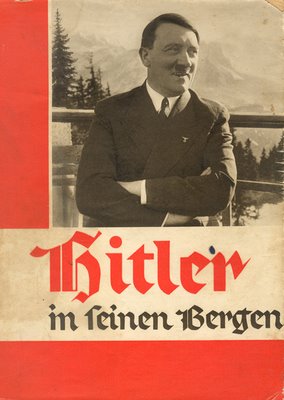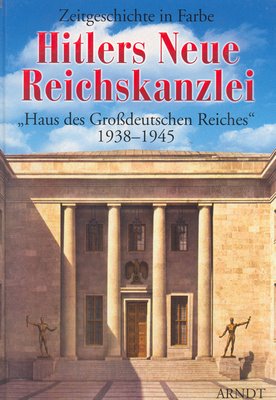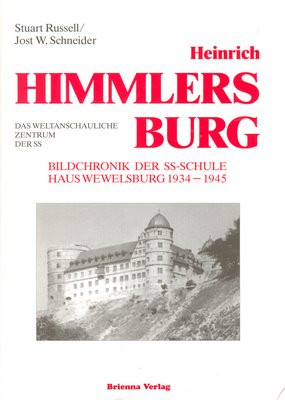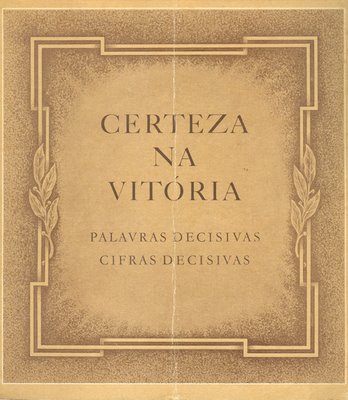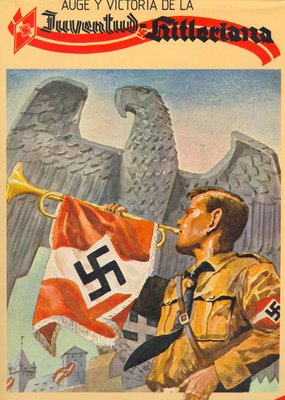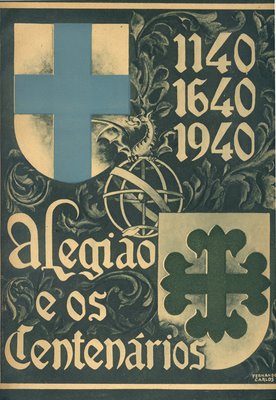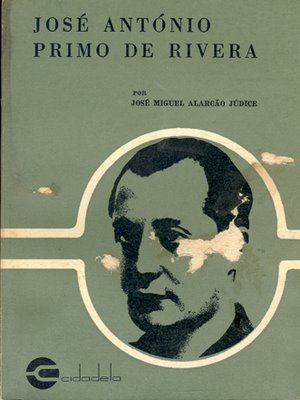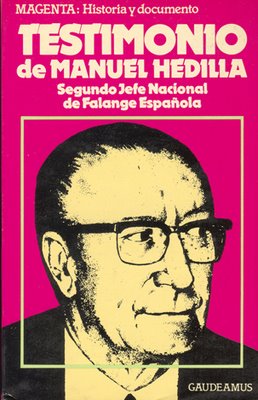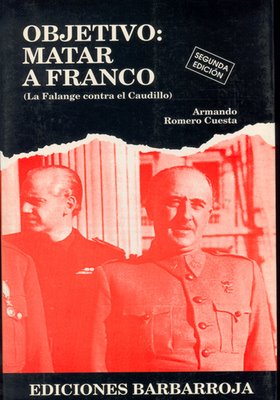quarta-feira, maio 31, 2006
Nacionalistas com os polícias
Comunicado de Terça-feira, 30 Maio 2006:
Os Nacionalistas entendem que as forças da ordem e segurança, são um dos pilares fundamentais de uma Nação. São elas que garantem a soberania, a autoridade e a segurança das pessoas e do Estado.
Não é por isso, concebível, que esse mesmo Estado as mal trate, despreze e desautorize.
É entendimento do PNR, que as forças policiais, em Portugal, estão desde há longos anos, desprovidas da sua legítima autoridade e dignidade. Estão a ser mal utilizadas e manietadas no verdadeiro cumprimento do seu dever.
Como se tal não bastasse, e face a uma criminalidade e insegurança crescentes - fruto da invasão imigrante descontrolada - ainda se reduzem as condições de trabalho e de estabilidade para os agentes da autoridade.
Porque o PNR reclama que os polícias sejam utilizados para o seu fim próprio e não na caça à multa ou em funções administrativas;
Porque o PNR exige que se devolva a justa autoridade aos polícias no exercício das suas funções;
Porque o PNR defende que se criem as condições e meios de trabalho dignos para esta profissão de risco e desgaste rápido;
Estaremos presentes - oficialmente representados e identificados - na manifestação de polícias do próximo dia 7 de Junho.
Comissão Política Nacional
30 de Maio de 2006
Os Nacionalistas entendem que as forças da ordem e segurança, são um dos pilares fundamentais de uma Nação. São elas que garantem a soberania, a autoridade e a segurança das pessoas e do Estado.
Não é por isso, concebível, que esse mesmo Estado as mal trate, despreze e desautorize.
É entendimento do PNR, que as forças policiais, em Portugal, estão desde há longos anos, desprovidas da sua legítima autoridade e dignidade. Estão a ser mal utilizadas e manietadas no verdadeiro cumprimento do seu dever.
Como se tal não bastasse, e face a uma criminalidade e insegurança crescentes - fruto da invasão imigrante descontrolada - ainda se reduzem as condições de trabalho e de estabilidade para os agentes da autoridade.
Porque o PNR reclama que os polícias sejam utilizados para o seu fim próprio e não na caça à multa ou em funções administrativas;
Porque o PNR exige que se devolva a justa autoridade aos polícias no exercício das suas funções;
Porque o PNR defende que se criem as condições e meios de trabalho dignos para esta profissão de risco e desgaste rápido;
Estaremos presentes - oficialmente representados e identificados - na manifestação de polícias do próximo dia 7 de Junho.
Comissão Política Nacional
30 de Maio de 2006
1 Comentários
Libreria Europa
Memorias de un fascista
Sire, vous et moi
Nuestra Europa
Leon Degrelle firma y rubrica
Mi camino de Santiago
Léon Degrelle y el rexismo
Léon Degrelle o último nazi
La historia de las SS europeas
terça-feira, maio 30, 2006
Léon Degrelle 50 anos depois
In memoriam Léon Degrelle
Eu SS Tintim
El Dr. Leuchter
Carta al Papa
Bajo la tirania
Almas ardiendo
Catalogue des Éditions du Trident
segunda-feira, maio 29, 2006
Iraq, Iran and the end of petrodollar: The waning influence of the USA in the Asian century
Segue-se um artigo de Bulent Gokay, datado de 15.05.2006, que encontrei no Geostratégie e no Pravda.
Excelente análise da situação geopolítica presente, quase tão bom como as análises do Batalha Final.
Throughout history, empires and their civilisations have come and gone. During the first part of the last century, the US quietly built its empire, first in the North and Central Americas and in South America. Soon after the Second World War, the US worked to maximise the advantages it gained, and the power it assumed, between 1943 and 1945, from its victory over Germany and Japan, and as a consequence of massive Soviet casualties, and large British debt and financial burden caused by the war. The USA assumed the leading role in the Western world by, on one hand, containing the Soviet Union and preventing the spread of communist revolution beyond the borders of the Soviet bloc; and on the other hand, ensuring uncontested American supremacy within the Western world.
During the Cold War years, there was little or no challenge to the dominant position of the US in the Western world. However, with the end of the Soviet Union in 1991, the knot tying the basic objectives of the US global strategy together began to come unraveled. Once the communist danger was off the table, American supremacy ceased to be an automatic requirement of the Western system.
Since 20 September 2002, the US government has abandoned its former multilateral approach to global affairs, and adopted an imperial posture known as the so-called Bush doctrine.
This new agenda is based on militarist and imperial values with some theocratic overtones. This agenda looks much like what some people see in US foreign policy at the end of the 19th century, and the beginning of the 20th, when the US actively sought to dominate the entire Caribbean basin, Central America and even the western Pacific.
Six months after the Bush doctrine was announced, the new American doctrine was applied as a justification for an unprovoked war against Iraq by the neo-conservative administration of the US. Toppling Saddam Hussein's regime without the support of the UN, and in the face of strong opposition from traditional US allies, was a clear presentation of a new unilateralist American foreign policy. The 'regime change' in Baghdad was not an isolated event, but only an opening salvo in a much broader neo-conservative agenda. The neo-conservatives 'advocate a paradigm shift in which the United States spreads American values by asserting American power-by force, if necessary'. This agenda seeks to reshape American hegemonic practices according to old imperial doctrines, but with new post-colonial political and military tools. This was described most clearly by Irving Kristol, who is considered as founder of the US neo-conservatism: 'it would be natural for the United States to play a far more dominant role in world affairs, to command and to give orders as to what is to be done. People need that.'
Since 2005, there is a looming crisis brewing over Iran. In the media the phantom of Iran 'threat' is being amplified across the world. In order to justify a military operation against Iran, the neo-conservative rulers of the US have started a demonization campaign against this country, presenting the latest incarnation of America's enemy, in much the same way Saddam Hussein was in the run-up to the invasion of Iraq. They have put a lot of effort into making people believe that Iran is ruled by dangerously crazy people who are trying to make a nuclear bomb, and that they would not hesitate to bomb one or more US cities. In view of such a danger, the only answer is to wage a preventive war. Speculations about possible U.S.-Israel attacks on Iran have reached a stage of war propaganda by Western media.
A recent report by the Oxford Research Group revealed that any bombing of Iran by U.S. forces, or by their Israeli allies, would result in the unnecessary death of many innocent lives. 'A US military attack on Iranian nuclear infrastructure would be the start of a protracted military confrontation that would probably involve Iraq, Israel and Lebanon as well as the United States and Iran, with the possibility of western Gulf States being involved as well', says the report written by Paul Rogers. The report also argues that Military deaths in. (the) first wave of attacks against Iran would be expected to be in the thousands, especially with attacks on air bases and Revolutionary Guard facilities. Civilian deaths would be in the many hundreds at least, particularly with the requirement to target technical support for the Iranian nuclear and missile infrastructure, with many of the factories being located in urban areas. If the war evolved into a wider conflict, primarily to pre-empt or counter Iranian responses, the casualties would eventually be much higher.
Many observers view the US neo-conservative clique and its agenda as a conspiracy. This article, however, is based on the premise that they are merely part of a larger equation of global systemic structures. This view is rooted in an understanding that vested interests representing the energy, electronics, weapons, and influential segments of the media and communications industries in the US are always entrenched in key sectors of government. These interests are concerned with maintaining their privileged position. And key elements of the US economic and political elite are now responding directly to changes in global conditions that have arisen since the end of the Cold War. This is not a conspiracy. It is only business as usual.
Since the end of the Cold War, the US has waged four wars - two in Iraq, one in the former-Yugoslavia, and one in Afghanistan - and is threatening more. All this aggression is not the result of a paranoid theory, but simply a convergence of political and economic interests, traveling under the rubric of 'war on terror'. This argument is not based on the image of a few evil people, conspiring in secret, against the people for their evil aims. However, diverging from conspiracy theory does not ignore the fact that indeed there are real conspiracies, criminal or otherwise. In particular, the US political landscape is littered with examples of illegal political, corporate and government conspiracies, such as Watergate, and the Iran-Contra scandal.
Having said that the belief in conspiracy theories deflects attention away from the real geopolitical grounds behind the political-economic events. Conspiracy theories tend not to focus on impersonal forces like political and economic structures, geopolitical forces, market economics, globalisation, and other such abstract explanations of human events. They are based on notions that all of human history is shaped by secret societies. While real conspiracies have existed throughout history, history itself is not a conspiracy.
The economic power of the United States was in stagnation since the 1970s and is in decline since the end of the Cold War. Particularly its share of world trade and manufacturing is substantially less than it was just prior to the end of the Cold War, and its relative economic strength measured against the EU and the East Asian economic group of Japan, China and other Southeast Asian countries is similarly in retreat. The persistent use of US military power can be viewed as a reaction to its declining economic power and not merely as a response to the post-Cold War geopolitical picture. The American neo-conservative leaders see the military power of the USA's trump card that can be employed to prevail over all its rivals', and thus stop this decline. This is what the Bush administration is trying to achieve: to create a militarised world in which the strength of the US military forces can change and re-define the rules of the game. This is a clear goal, a specific agenda, which does not constitute a conspiracy. It is merely the way in which the system currently works, and the US administration is taking advantage of existing structural opportunities. This article is an attempt to provide primarily a macroeconomic explanation to the origins of and motivations behind the recent US policies shaped by the neo-conservative Bush administration.
American "Dollar" Imperialism
"Imagine this: you are deep in debt but every day you write cheques for millions of dollars you don't have -- another luxury car, a holiday home at the beach, the world trip of a lifetime. Your cheques should be worthless but they keep buying stuff because those cheques you write never reach the bank! You have an agreement with the owners of one thing everyone wants, call it petrol/gas, that they will accept only your cheques as payment. This means everyone must hoard your cheques so they can buy petrol/gas. Since they have to keep a stock of your cheques, they use them to buy other stuff too. You write a cheque to buy a TV, the TV shop owner swaps your cheque for petrol/gas, that seller buys some vegetables at the fruit shop, the fruiterer passes it on to buy bread, the baker buys some flour with it, and on it goes, round and round -- but never back to the bank. You have a debt on your books, but so long as your cheque never reaches the bank, you don't have to pay. In effect, you have received your TV free. This is the position the USA has enjoyed for 30 years."
Since the US emerged as the dominant global superpower at the end of the Second World War, US hegemony rested on three unchallengeable pillars:
1) overwhelming US military superiority over all its rivals;
2) the superiority of American production methods and the relative strength of the US economy;
3) control over global economic markets, with the US dollar acting as the global reserve currency.
Of these three, the role of the dollar may be the greatest among equals. The US dollar is the world's reserve currency, meaning that central banks all over the world hold huge amounts of dollars in reserve. As a result of this situation, today America borrows from practically the entire world without keeping the reserves of any other currency. Because the dollar is the de facto global reserve currency, US currency accounts for approximately two-thirds of all official exchange reserves. America does not have to compete with other currencies in interest rates, and even at low interest rates capital flies to the dollar. The more dollars are circulated outside the US, or invested by foreign owners in American assets, the more the rest of the world has had to provide the US with goods and services in exchange for these dollars. The US even has the luxury of having its debts denominated in its own currency.
How does this work?
The United States runs a balance of payments deficit by spending more money in other countries (buying their products, investing in them, or giving them dollars) than they spend in the United States . - The extra dollars are held by the countries' central banks. The banks do not ask the United States to redeem them for gold or another currency. As long as foreign banks accept and hold dollars as if they were gold, the dollars act as reserves.
The US economy began to dominate the world economy in the early 20th century. The US dollar was then tied to gold, so that the value of the dollar neither increased nor decreased, but remained the same amount of gold. Most money was paper, as it is now, but governments were required, if requested, to redeem that paper for gold. This 'convertibility' put an upper limit on the amount of paper currency governments could print in order to prevent inflation. This link between paper money and gold was a product of law as well as custom. The Federal Reserve, which was established in 1913, had to ensure that every dollar of paper money was backed by at least forty cents of gold. There was no tradition (as there is today) of continuous inflation. The large levels of inflation and astronomic levels of government deficits during the Great Depression, 1929-1931, rendered the support of US dollars by gold impossible. By the early 1930s, this led the US President Roosevelt to adjust the dollar/ gold ratio as he saw fit. Until this point, the US may well have been a dominant power in the world economy, but from an economics point of view, it was not an empire. The fixed value of the dollar did not allow the US government to extract economic benefits from other countries by supplying them with dollars convertible to gold.
The American Empire was born, in a real economics sense of the term, with Bretton Woods in 1945. After 1945, the dollar was not fully convertible to gold, but was made convertible to gold only to foreign governments. As a result of this, the dollar established itself as the global reserve currency. No one planned this development. It came directly from the fact that the US was the dominant world power: well over half of all international money transactions were financed in terms of dollar; the US produced more than half the world output; the US also owned a large section of the gold reserves in the world. This became possible because during the Second World War, the US had supplied its allies with provisions, demanding gold as payment, thus accumulating significant portions of the world's gold reserves. By 1945, the US had accumulated 80 percent of the world's gold, and 40 percent of the world's production.
The aggressive policies of the 1960s, however, put an increasing pressure on the US dollar. The US economy experienced a cumulative reserve deficit. In particular, the dollar supply was relentlessly increased to finance America's war in Vietnam. Financially the Vietnam War was a real mess. The US printed and spent more money than their gold reserves allowed. By 1963, the US gold reserve at Manhattan had fallen to alarmingly low levels -- it barely covered liabilities to foreign central banks. By 1970 the gold coverage had fallen to 55%, by 1971 22%. Before the Vietnam War, the US had $30 billion in gold reserves, but it spent more than $500 billion on the war alone. By this time, the post-war reconstruction period had come to an end, and the European and Japanese economies had improved their economic position relative to the US, which had increased pressure on the US dollar. The strain on the US financial system became evident in 1965, when French President de Gaulle demanded gold from the US in exchange for $300 million in debt.
The situation reached a crisis point in 1970-71 when more foreign central banks tried to convert their dollar reserves into gold. In response to a massive flight from the dollar, the US government defaulted on its payment on 15 August 1971 by cutting the link between the dollar and gold. This was because it seems that there was no other choice - the US government would not be able to buy back its dollars in gold. If governments and foreign central banks tried to convert even a quarter of their holdings at one time, the United States would not be able to honour its obligations. Hence the Bretton Woods system was ended. This was a serious crisis inspired by a significant loss of confidence in dollar. As a result, the dollar was left 'floated' in the international monetary market, which weakened the position of the dollar as the hegemonic currency. Now the dollar had no firm backing other than the 'full faith and credit' of the US government. From that point on, the US had to find a way convincing the rest of the world to continue to accept every devalued dollars in exchange for economic goods and services the US needed to get from others. It had to find an economic reason for the rest of the world to hold US dollars: oil provided that reason, and the term petrodollar became the crucial link in this.
Excelente análise da situação geopolítica presente, quase tão bom como as análises do Batalha Final.
Throughout history, empires and their civilisations have come and gone. During the first part of the last century, the US quietly built its empire, first in the North and Central Americas and in South America. Soon after the Second World War, the US worked to maximise the advantages it gained, and the power it assumed, between 1943 and 1945, from its victory over Germany and Japan, and as a consequence of massive Soviet casualties, and large British debt and financial burden caused by the war. The USA assumed the leading role in the Western world by, on one hand, containing the Soviet Union and preventing the spread of communist revolution beyond the borders of the Soviet bloc; and on the other hand, ensuring uncontested American supremacy within the Western world.
During the Cold War years, there was little or no challenge to the dominant position of the US in the Western world. However, with the end of the Soviet Union in 1991, the knot tying the basic objectives of the US global strategy together began to come unraveled. Once the communist danger was off the table, American supremacy ceased to be an automatic requirement of the Western system.
Since 20 September 2002, the US government has abandoned its former multilateral approach to global affairs, and adopted an imperial posture known as the so-called Bush doctrine.
This new agenda is based on militarist and imperial values with some theocratic overtones. This agenda looks much like what some people see in US foreign policy at the end of the 19th century, and the beginning of the 20th, when the US actively sought to dominate the entire Caribbean basin, Central America and even the western Pacific.
Six months after the Bush doctrine was announced, the new American doctrine was applied as a justification for an unprovoked war against Iraq by the neo-conservative administration of the US. Toppling Saddam Hussein's regime without the support of the UN, and in the face of strong opposition from traditional US allies, was a clear presentation of a new unilateralist American foreign policy. The 'regime change' in Baghdad was not an isolated event, but only an opening salvo in a much broader neo-conservative agenda. The neo-conservatives 'advocate a paradigm shift in which the United States spreads American values by asserting American power-by force, if necessary'. This agenda seeks to reshape American hegemonic practices according to old imperial doctrines, but with new post-colonial political and military tools. This was described most clearly by Irving Kristol, who is considered as founder of the US neo-conservatism: 'it would be natural for the United States to play a far more dominant role in world affairs, to command and to give orders as to what is to be done. People need that.'
Since 2005, there is a looming crisis brewing over Iran. In the media the phantom of Iran 'threat' is being amplified across the world. In order to justify a military operation against Iran, the neo-conservative rulers of the US have started a demonization campaign against this country, presenting the latest incarnation of America's enemy, in much the same way Saddam Hussein was in the run-up to the invasion of Iraq. They have put a lot of effort into making people believe that Iran is ruled by dangerously crazy people who are trying to make a nuclear bomb, and that they would not hesitate to bomb one or more US cities. In view of such a danger, the only answer is to wage a preventive war. Speculations about possible U.S.-Israel attacks on Iran have reached a stage of war propaganda by Western media.
A recent report by the Oxford Research Group revealed that any bombing of Iran by U.S. forces, or by their Israeli allies, would result in the unnecessary death of many innocent lives. 'A US military attack on Iranian nuclear infrastructure would be the start of a protracted military confrontation that would probably involve Iraq, Israel and Lebanon as well as the United States and Iran, with the possibility of western Gulf States being involved as well', says the report written by Paul Rogers. The report also argues that Military deaths in. (the) first wave of attacks against Iran would be expected to be in the thousands, especially with attacks on air bases and Revolutionary Guard facilities. Civilian deaths would be in the many hundreds at least, particularly with the requirement to target technical support for the Iranian nuclear and missile infrastructure, with many of the factories being located in urban areas. If the war evolved into a wider conflict, primarily to pre-empt or counter Iranian responses, the casualties would eventually be much higher.
Many observers view the US neo-conservative clique and its agenda as a conspiracy. This article, however, is based on the premise that they are merely part of a larger equation of global systemic structures. This view is rooted in an understanding that vested interests representing the energy, electronics, weapons, and influential segments of the media and communications industries in the US are always entrenched in key sectors of government. These interests are concerned with maintaining their privileged position. And key elements of the US economic and political elite are now responding directly to changes in global conditions that have arisen since the end of the Cold War. This is not a conspiracy. It is only business as usual.
Since the end of the Cold War, the US has waged four wars - two in Iraq, one in the former-Yugoslavia, and one in Afghanistan - and is threatening more. All this aggression is not the result of a paranoid theory, but simply a convergence of political and economic interests, traveling under the rubric of 'war on terror'. This argument is not based on the image of a few evil people, conspiring in secret, against the people for their evil aims. However, diverging from conspiracy theory does not ignore the fact that indeed there are real conspiracies, criminal or otherwise. In particular, the US political landscape is littered with examples of illegal political, corporate and government conspiracies, such as Watergate, and the Iran-Contra scandal.
Having said that the belief in conspiracy theories deflects attention away from the real geopolitical grounds behind the political-economic events. Conspiracy theories tend not to focus on impersonal forces like political and economic structures, geopolitical forces, market economics, globalisation, and other such abstract explanations of human events. They are based on notions that all of human history is shaped by secret societies. While real conspiracies have existed throughout history, history itself is not a conspiracy.
The economic power of the United States was in stagnation since the 1970s and is in decline since the end of the Cold War. Particularly its share of world trade and manufacturing is substantially less than it was just prior to the end of the Cold War, and its relative economic strength measured against the EU and the East Asian economic group of Japan, China and other Southeast Asian countries is similarly in retreat. The persistent use of US military power can be viewed as a reaction to its declining economic power and not merely as a response to the post-Cold War geopolitical picture. The American neo-conservative leaders see the military power of the USA's trump card that can be employed to prevail over all its rivals', and thus stop this decline. This is what the Bush administration is trying to achieve: to create a militarised world in which the strength of the US military forces can change and re-define the rules of the game. This is a clear goal, a specific agenda, which does not constitute a conspiracy. It is merely the way in which the system currently works, and the US administration is taking advantage of existing structural opportunities. This article is an attempt to provide primarily a macroeconomic explanation to the origins of and motivations behind the recent US policies shaped by the neo-conservative Bush administration.
American "Dollar" Imperialism
"Imagine this: you are deep in debt but every day you write cheques for millions of dollars you don't have -- another luxury car, a holiday home at the beach, the world trip of a lifetime. Your cheques should be worthless but they keep buying stuff because those cheques you write never reach the bank! You have an agreement with the owners of one thing everyone wants, call it petrol/gas, that they will accept only your cheques as payment. This means everyone must hoard your cheques so they can buy petrol/gas. Since they have to keep a stock of your cheques, they use them to buy other stuff too. You write a cheque to buy a TV, the TV shop owner swaps your cheque for petrol/gas, that seller buys some vegetables at the fruit shop, the fruiterer passes it on to buy bread, the baker buys some flour with it, and on it goes, round and round -- but never back to the bank. You have a debt on your books, but so long as your cheque never reaches the bank, you don't have to pay. In effect, you have received your TV free. This is the position the USA has enjoyed for 30 years."
Since the US emerged as the dominant global superpower at the end of the Second World War, US hegemony rested on three unchallengeable pillars:
1) overwhelming US military superiority over all its rivals;
2) the superiority of American production methods and the relative strength of the US economy;
3) control over global economic markets, with the US dollar acting as the global reserve currency.
Of these three, the role of the dollar may be the greatest among equals. The US dollar is the world's reserve currency, meaning that central banks all over the world hold huge amounts of dollars in reserve. As a result of this situation, today America borrows from practically the entire world without keeping the reserves of any other currency. Because the dollar is the de facto global reserve currency, US currency accounts for approximately two-thirds of all official exchange reserves. America does not have to compete with other currencies in interest rates, and even at low interest rates capital flies to the dollar. The more dollars are circulated outside the US, or invested by foreign owners in American assets, the more the rest of the world has had to provide the US with goods and services in exchange for these dollars. The US even has the luxury of having its debts denominated in its own currency.
How does this work?
The United States runs a balance of payments deficit by spending more money in other countries (buying their products, investing in them, or giving them dollars) than they spend in the United States . - The extra dollars are held by the countries' central banks. The banks do not ask the United States to redeem them for gold or another currency. As long as foreign banks accept and hold dollars as if they were gold, the dollars act as reserves.
The US economy began to dominate the world economy in the early 20th century. The US dollar was then tied to gold, so that the value of the dollar neither increased nor decreased, but remained the same amount of gold. Most money was paper, as it is now, but governments were required, if requested, to redeem that paper for gold. This 'convertibility' put an upper limit on the amount of paper currency governments could print in order to prevent inflation. This link between paper money and gold was a product of law as well as custom. The Federal Reserve, which was established in 1913, had to ensure that every dollar of paper money was backed by at least forty cents of gold. There was no tradition (as there is today) of continuous inflation. The large levels of inflation and astronomic levels of government deficits during the Great Depression, 1929-1931, rendered the support of US dollars by gold impossible. By the early 1930s, this led the US President Roosevelt to adjust the dollar/ gold ratio as he saw fit. Until this point, the US may well have been a dominant power in the world economy, but from an economics point of view, it was not an empire. The fixed value of the dollar did not allow the US government to extract economic benefits from other countries by supplying them with dollars convertible to gold.
The American Empire was born, in a real economics sense of the term, with Bretton Woods in 1945. After 1945, the dollar was not fully convertible to gold, but was made convertible to gold only to foreign governments. As a result of this, the dollar established itself as the global reserve currency. No one planned this development. It came directly from the fact that the US was the dominant world power: well over half of all international money transactions were financed in terms of dollar; the US produced more than half the world output; the US also owned a large section of the gold reserves in the world. This became possible because during the Second World War, the US had supplied its allies with provisions, demanding gold as payment, thus accumulating significant portions of the world's gold reserves. By 1945, the US had accumulated 80 percent of the world's gold, and 40 percent of the world's production.
The aggressive policies of the 1960s, however, put an increasing pressure on the US dollar. The US economy experienced a cumulative reserve deficit. In particular, the dollar supply was relentlessly increased to finance America's war in Vietnam. Financially the Vietnam War was a real mess. The US printed and spent more money than their gold reserves allowed. By 1963, the US gold reserve at Manhattan had fallen to alarmingly low levels -- it barely covered liabilities to foreign central banks. By 1970 the gold coverage had fallen to 55%, by 1971 22%. Before the Vietnam War, the US had $30 billion in gold reserves, but it spent more than $500 billion on the war alone. By this time, the post-war reconstruction period had come to an end, and the European and Japanese economies had improved their economic position relative to the US, which had increased pressure on the US dollar. The strain on the US financial system became evident in 1965, when French President de Gaulle demanded gold from the US in exchange for $300 million in debt.
The situation reached a crisis point in 1970-71 when more foreign central banks tried to convert their dollar reserves into gold. In response to a massive flight from the dollar, the US government defaulted on its payment on 15 August 1971 by cutting the link between the dollar and gold. This was because it seems that there was no other choice - the US government would not be able to buy back its dollars in gold. If governments and foreign central banks tried to convert even a quarter of their holdings at one time, the United States would not be able to honour its obligations. Hence the Bretton Woods system was ended. This was a serious crisis inspired by a significant loss of confidence in dollar. As a result, the dollar was left 'floated' in the international monetary market, which weakened the position of the dollar as the hegemonic currency. Now the dollar had no firm backing other than the 'full faith and credit' of the US government. From that point on, the US had to find a way convincing the rest of the world to continue to accept every devalued dollars in exchange for economic goods and services the US needed to get from others. It had to find an economic reason for the rest of the world to hold US dollars: oil provided that reason, and the term petrodollar became the crucial link in this.
0 Comentários
domingo, maio 28, 2006
O bom combate
Caminhando sempre, os blogues que não desistem de travar o bom combate.
Destaco hoje quatro, todos muito diferentes entre eles e todos iguais na determinação de continuar:
São exemplos, a lembrar que só são derrotados os que desistem. Orgulhosamente, bandeira ao vento, a hora é de continuar.
2 Comentários
sexta-feira, maio 26, 2006
O PNR ao lado dos polícias
28 de Maio, nos Jerónimos
Tierra y Pueblo
quarta-feira, maio 24, 2006
Juventude Nacionalista visita exposição "Religiões da Lusitânia"
A JN (Juventude Nacionalista) realiza no próximo 28 de Maio, pelas 11 horas, uma visita à exposição Religiões da Lusitânia, presente no Museu Nacional de Arqueologia, Mosteiro dos Jerónimos.
Informações no PNR.
Informações no PNR.
0 Comentários
segunda-feira, maio 22, 2006
Rudolf Hess
Vitória para a Europa
Wenn alle brueder schweigen
SS Totenkopf
Obersalzberg
Obersalzberg
Nazi Regalia
Munchen
Le nid d'aigle
Oliveira Salazar
Albert Speer
Adolf Hitler
sábado, maio 20, 2006
Pela Independência Nacional
sexta-feira, maio 19, 2006
A Legião Portuguesa
Joseph Goebbles
Hoffmann & Hitler
Hitler in seiner Heimat
Hitler in seinen Bergen
Hitlers Neue Reichskanzlei
Heinrich Himmlers Burg
GrossDeutschland Reichsparteitag
Der Osterreich Anschluss
Certeza na vitória
Auge y victoria de la Juventud Hitleriana
Alemanha ano olímpico
A Legião e os Centenários
quinta-feira, maio 18, 2006
1º de Dezembro de 1953
Verdadeiramente arrepiante a reportagem radiofónica do 1º de Dezembro de 1953!
Um grande obrigado ao Engenheiro! Magnífico!
0 Comentários
Um grande obrigado ao Engenheiro! Magnífico!
0 Comentários
A Pátria são os homens?
A propósito de debates em curso (Sexo dos Anjos e Nova Frente), recordo um velho artigo do Professor Doutor António José de Brito publicado há muitos anos no semanário "A Rua", uma vez que num discurso do Presidente da República General Ramalho Eanes aflorou essa afirmação -"A Pátria são os homens".
"A tese mais curiosa defendida, hoje em dia, é que a pátria não são os territórios, antes e exclusivamente os homens. Trata-se de uma peregrina concepção congeminada acaso como álibi (de resto infeliz, consoante mostraremos), mas cuja consistência lógica é extremamente frágil. Porque os homens são diferentes entre si e passam, enquanto aquilo que se chama pátria é uno e permanente. Se Portugal fosse homens, Portugal não seria senão uma sucessão infinita de nacionalidades, tantas quantos os homens que se foram sucedendo. E já, para que essas nacionalidades sucessivas não fossem soma dos individuos tomados um por um, seria indispensável recorrer à noção de território. Como se distinguiria um grupo de indivíduos perante o estrangeiro (a não se admitir a raça qual critério válido) senão pela sua fixação num certo "habitat" geográfico?
Portugal seria hoje o conjunto dos portugueses actuais, porque seria a série dos indivíduos que vivem no rectângulo impropriamente chamado Portugal; doutra forma, o que separaria tais indivíduos dos chineses, dos persas, que também são indivíduos?
E repare-se, até, que, se acharmos que a pátria são os homens que habitam uma certa região do globo e pretendermos evitar o desfile fílmico das pátrias, tantas quantas as gerações que nas referidas regiões vão vivendo, o que resta de duradoiro são, apenas, essas regiões do território, em suma. A doutrina em discussão está, portanto, sempre a um milímetro de se converter na sua contrária.
Deixemos isso, no entanto.
Se as pátrias são os homens, transplantados estes para outros locais, a pátria persistiria ainda. A nossa população no Polo Norte seria Portugal.
Algumas perguntas surgem, contudo: teria de se manter, exactamente, o mesmo número de pessoas? Ou poderia haver uma discreta tolerância aritmética? E, neste último caso, até quantos homens teríamos a pátria? Bastaria uma simples maioria absoluta? E porque há-de ser homogéneo o local para onde se transplantem as populações? Se o território não é muito relevante, para que Portugal subsista, porque não distribuir os homens que o constituem "hic et nunc" por todo esse vasto mundo: dez nas Seichelles, quinze nas Fidji, cinco em Tristão da Cunha e assim sucessivamente?
Não vemos, nesta altura, o que os ligaria entre si. De qualquer forma, segundo a nova teoria, a pátria continuaria a existir. No instante, porém, em que as pessoas desaparecessem por morte, é que seríamos forçados a admitir que a pátria nada mais era. A nova teoria aqui esgotou os seus fantasiosos recursos. Abandonemos, todavia, o absurdo desta estranha concepção de pátria, que foi inventada, provavelmente, para justificar o abandono dos territórios por parte daqueles que tinham jurado bater-se pelas fronteiras até à morte. Esse o núcleo crucial da nova ideia de pátria: a tentativa de legitimar a destruição da pátria autêntica. Que não é unicamente nem o território nem os homens, mas um vínculo comum e perene que une estes através dos tempos permanecendo o mesmo, enquanto eles desaparecem uns atrás dos outros. Vínculo que representava um dever e se projecta numa soberania exercida num território e numa obra cultural que nele se desenrola. O território é, assim, o espaço da pátria, o testemunho visível da sua autonomia e perpetuidade, se, por detrás, estiver uma vontade firme de conservação e defesa. Eis o motivo pelo qual jamais se pode renunciar a ele, senão pela força, que não cria direito. A entrega voluntária, sem luta ou praticamente sem luta, de territórios nacionais, é um atentado contra a pátria, é, por isso mesmo, uma vergonha ou um crime sem par. Sacrificaram-se os habitantes neles radicados, imolaram-se os homens, atirando-os, como gado, para as mãos selvagens, cruéis, primárias dos novos amos. Centenas de milhar pereceram nas convulsões da "descolonização exemplar", mais de um milhão viu-se despojado de tudo, expulso dos lares sob saraivadas de injúrias e insultos, passando a vegetar ao Deus dará, neste recanto da Europa à beira mar plantado. Depois de terem prometido solenemente aos "homens" que seriam ouvidos no tocante ao destino a dar às províncias ultramarinas, estas foram distribuidas por sobas às ordens de Moscovo sem ninguém ter sido consultado ou escutado, excepto, claro, os dignos desgovernantes que dispuseram, a bel-prazer, daquilo que lhes não pertencia.
Não há dúvida que, a considerar-se que a pátria são os homens, estes foram magnificamente tratados.
António José de Brito
"A tese mais curiosa defendida, hoje em dia, é que a pátria não são os territórios, antes e exclusivamente os homens. Trata-se de uma peregrina concepção congeminada acaso como álibi (de resto infeliz, consoante mostraremos), mas cuja consistência lógica é extremamente frágil. Porque os homens são diferentes entre si e passam, enquanto aquilo que se chama pátria é uno e permanente. Se Portugal fosse homens, Portugal não seria senão uma sucessão infinita de nacionalidades, tantas quantos os homens que se foram sucedendo. E já, para que essas nacionalidades sucessivas não fossem soma dos individuos tomados um por um, seria indispensável recorrer à noção de território. Como se distinguiria um grupo de indivíduos perante o estrangeiro (a não se admitir a raça qual critério válido) senão pela sua fixação num certo "habitat" geográfico?
Portugal seria hoje o conjunto dos portugueses actuais, porque seria a série dos indivíduos que vivem no rectângulo impropriamente chamado Portugal; doutra forma, o que separaria tais indivíduos dos chineses, dos persas, que também são indivíduos?
E repare-se, até, que, se acharmos que a pátria são os homens que habitam uma certa região do globo e pretendermos evitar o desfile fílmico das pátrias, tantas quantas as gerações que nas referidas regiões vão vivendo, o que resta de duradoiro são, apenas, essas regiões do território, em suma. A doutrina em discussão está, portanto, sempre a um milímetro de se converter na sua contrária.
Deixemos isso, no entanto.
Se as pátrias são os homens, transplantados estes para outros locais, a pátria persistiria ainda. A nossa população no Polo Norte seria Portugal.
Algumas perguntas surgem, contudo: teria de se manter, exactamente, o mesmo número de pessoas? Ou poderia haver uma discreta tolerância aritmética? E, neste último caso, até quantos homens teríamos a pátria? Bastaria uma simples maioria absoluta? E porque há-de ser homogéneo o local para onde se transplantem as populações? Se o território não é muito relevante, para que Portugal subsista, porque não distribuir os homens que o constituem "hic et nunc" por todo esse vasto mundo: dez nas Seichelles, quinze nas Fidji, cinco em Tristão da Cunha e assim sucessivamente?
Não vemos, nesta altura, o que os ligaria entre si. De qualquer forma, segundo a nova teoria, a pátria continuaria a existir. No instante, porém, em que as pessoas desaparecessem por morte, é que seríamos forçados a admitir que a pátria nada mais era. A nova teoria aqui esgotou os seus fantasiosos recursos. Abandonemos, todavia, o absurdo desta estranha concepção de pátria, que foi inventada, provavelmente, para justificar o abandono dos territórios por parte daqueles que tinham jurado bater-se pelas fronteiras até à morte. Esse o núcleo crucial da nova ideia de pátria: a tentativa de legitimar a destruição da pátria autêntica. Que não é unicamente nem o território nem os homens, mas um vínculo comum e perene que une estes através dos tempos permanecendo o mesmo, enquanto eles desaparecem uns atrás dos outros. Vínculo que representava um dever e se projecta numa soberania exercida num território e numa obra cultural que nele se desenrola. O território é, assim, o espaço da pátria, o testemunho visível da sua autonomia e perpetuidade, se, por detrás, estiver uma vontade firme de conservação e defesa. Eis o motivo pelo qual jamais se pode renunciar a ele, senão pela força, que não cria direito. A entrega voluntária, sem luta ou praticamente sem luta, de territórios nacionais, é um atentado contra a pátria, é, por isso mesmo, uma vergonha ou um crime sem par. Sacrificaram-se os habitantes neles radicados, imolaram-se os homens, atirando-os, como gado, para as mãos selvagens, cruéis, primárias dos novos amos. Centenas de milhar pereceram nas convulsões da "descolonização exemplar", mais de um milhão viu-se despojado de tudo, expulso dos lares sob saraivadas de injúrias e insultos, passando a vegetar ao Deus dará, neste recanto da Europa à beira mar plantado. Depois de terem prometido solenemente aos "homens" que seriam ouvidos no tocante ao destino a dar às províncias ultramarinas, estas foram distribuidas por sobas às ordens de Moscovo sem ninguém ter sido consultado ou escutado, excepto, claro, os dignos desgovernantes que dispuseram, a bel-prazer, daquilo que lhes não pertencia.
Não há dúvida que, a considerar-se que a pátria são os homens, estes foram magnificamente tratados.
António José de Brito
0 Comentários

